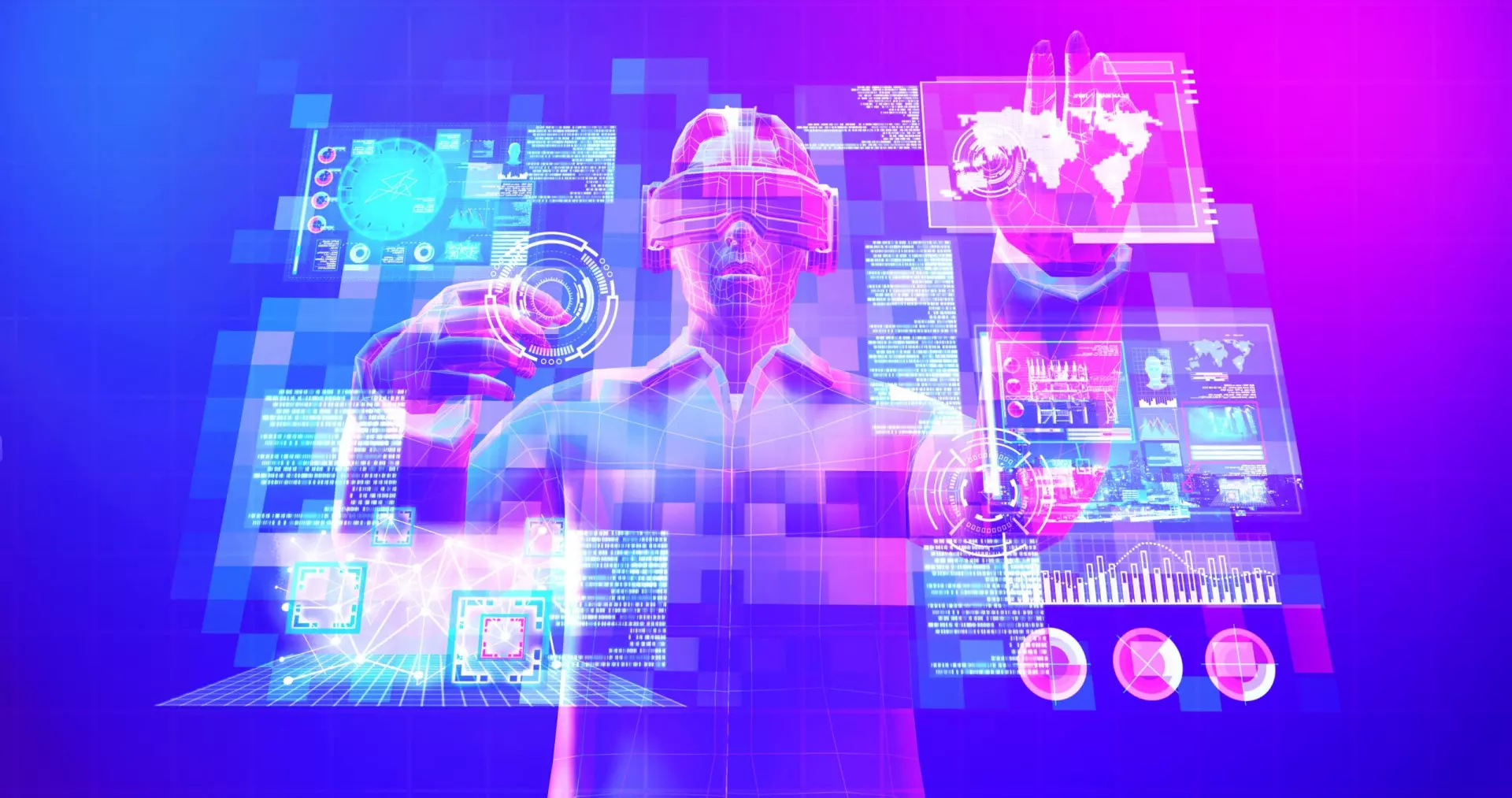Comments
- No comments found

We have witnessed a race by major technology companies to launch new platforms that signal the beginning of a new phase in the Digital Era: The Metaverse and Omniverse Era.
Those who perhaps believed AI, Blockchain, or Quantum would be the dominant force of the next Industrial Revolution are now likely wondering if The Metaverse or The Omniverse will play that key role.
From a futurist’s perspective, this is an exciting and long-awaited leap into immersive, multi-sensory, and converging technology experiences, however, we must also ask ourselves how will both of these poorly understood immersive digital ecosystems impact our society and culture?
From a digital ethicist’s perspective, one can expect significant concerns about how these will impact moral values and the ability to uphold ethical principles.
Experts were already warning about the profound and transformative socio-cultural impact of quantum, AI, blockchain, 6G, brain-computer interfaces, and other emerging technologies, as well as the need to prevent ethical violations. Now their concerns will be heightened and key stakeholders are faced with an even more complex Meta- and Omniverse-fueled digital ethics conundrum.

Before discussing the ethical dilemmas related to large-scale deployments of The Meta- and Mmniverse, we must first understand how they are defined. As highlighted in a recent technical paper published by Huansheng Ning and colleagues from Cornell University, The Metaverse is a “new type of internet application and social form that integrates a variety of new technologies”. The authors highlight its characteristics which are a symbiotic convergence of established technologies, emerging technologies, social media platform functionality and “hyper-spatio-temporality”. There is a vacuum of scientific papers on technical or ethical aspects related to The Omniverse, however, according to industry leaders promoting various applications such as Nvidia it is a trademarked term and represents “ a scalable, multi-GPU real-time reference development platform for 3D simulation and design collaboration, and based on Pixar's Universal Scene Description and NVIDIA RTX™ technology.”
Some of the key ethical concerns that ethicists are already envisioning for both The Metaverse and Metaverse are related to consumer trust and rights, “misuse or unauthorized use of metaverse or omniverse-generated data, as well as extreme vulnerability to cyber-attacks. Would The Metaverse and Omniverse deployments pass a basic ethics checklist? More than likely not.
It would be difficult to argue that they meet the beneficence criteria and while some might argue that the intent is clearly to promote innovation and societal progress, they certainly increase the potential for malicious use. Given the multiple breaches published and the stats on cybersecurity that continue to show exponential increases in cyber-attacks for major companies, one would be concerned that they both would fail the strictest criteria for confidentiality and integrity.
While we do not have any proof yet regarding their ability or inability to uphold the principles of fidelity, integrity, and autonomy, we can certainly extrapolate from past deployments of other emerging technologies that were significantly less sophisticated. That methodology would sadly lead us to expect them both to fail.
If the technology companies that seem to be racing to achieve Meta- or Omniverse-supremacy would consider state-of-the-art ethics to be a competitive advantage we might have a pleasant surprise for once in our history and actually learn valuable insights from our past mistakes. Few companies have understood the need to be proactive and invest upfront in complex digital ethics and data governance programs.
To mitigate the potential negative consequences induced by The Meta- and Omniverse, we must advocate for the design and deployment of proactive digital ethics, proactive cyber-defense programs and creating a culture of digital ethics and cyber-awareness. Furthermore, these would need to be integrated and hrmanonized with other enterprise compliance programs to prevent ethical breaches.
While regulatory and legal experts are still trying to bridge the gap in frameworks that can address emerging technologies such as blockchain, AI, or next-generation computing, they must now face an even larger challenge as the Metaverse and Onniverse are trespassing multiple industry boundaries, while posing unique, novel ethical challenges.

So who are the key stakeholders that can engage in a global Meta- and Omniverse Data Governance and Ethics Program? Governments, academia, the private sector, and not-for-profit organizations would all have to collaborate to be successful. In addition to legal and regulatory updates, developing international standards, implementing key ethical performance indicators, as well as embracing societal expectations of diversity and inclusion will be paramount. First, we would have to establish the ethical design philosophy and desired outcomes for a society fully immersed in the Meta and Omniverse. Second, we would aim to create a robust ethics architecture that would ensure adequate data governance and address identity management, privacy, security, ownership challenges etc. Third would be the development of a customized ethical framework for various industries or domains. This framework would include the impact on society, the environment, long-term sustainability, education, and emphasis on ESGs.

Pessimists will likely envision the worst possible outcomes with a negative impact on education, arts, culture, social interaction, etc.
Optimists will hope that companies leading the charge in deploying the Meta- and Omniverse would be ethically and purpose-driven, with a vision and mission that aim to deliver “ethical, transparent” services or even to facilitate the attainment of UN SDGs.
Ingrid Vasiliu-Feltes, MD MBA Is a healthcare executive, futurist and globalist who is highly dedicated to digital and ethics advocacy. She is a Forbes Business Council member, digital strategist, passionate educator and entrepreneurship ecosystem builder, known as an expert speaker, board advisor and consultant. Throughout her career she has received several awards for excellence in research, teaching or leadership. She is the recipient of numerous awards most notably: WBAF World Excellence AwardSocial Entrepreneurship 2021, Top 20 Global Leaders in Digital Twins Technologies, Top 50 Global Leaders in Health Tech,Top 50 Global Ecosystem Leaders, Top 100 Visionary In Education Award 2021, Top 100 Global Women in Leadership Award 2021, Top 100 World Women Vision Award, 2021-Innovation & Tech, Top 100 Women in Social Enterprise 2021 (nominee),Top 50 Global Thinkers (Nominee),Nations of Women Change Makers Award(finalist),Top 100 Healthcare Leader 2020 Award, Top 100 Finance Leader 2020 Award, and Top 100 Women in Crypto 2020. Additionally, she serves as an Expert Advisor to the EU Blockchain Observatory Forum, and was appointed to the Board of UN Legal and Economic Empowerment Network. Dr. Vasiliu-Feltes is CEO of Softhread Inc., the Founder and CEO of The Science, Entrepreneurship and Investments Institute, and currently serving as a Country Director for WBAF USA, Senator of WBAF, Faculty Member of the WBAF Business School-Division of Entrepreneurship, and teaching the Executive MBA Business Technology Course at the UM Business School. She is also acting as the Chief Innovation Officer for the Government Blockchain Association. Most recently she served as President of Detect Genomix, Chief Quality and Safety Officer Chief and Innovation Officer for Mednax, Chief Quality and Safety Officer and Chief of Compliance for the University of Miami UHealth System During her academic tenure she taught several courses within the Medical School, as well as the combined MD/PhD and MD/MPH programs. Throughout her career, Dr. Vasiliu-Feltes held several leadership positions and is a member of numerous prestigious professional organizations. She holds several certifications, such as Bioethics from Harvard, Artificial Intelligence and Business Strategy from MIT Sloan, Blockchain Technology and Business Innovation from MIT Sloan, Finance from Harvard Business School, Negotiation from Harvard Law School, Innovation and Entrepreneurship from Stanford Graduate School of Business, Certified Professional in Healthcare Risk Management, Fellow of the American College of Healthcare Executives, Patient Safety Officer by the International Board Federation of Safety Managers, Master Black Belt in Lean and Six Sigma Management, Professional in Healthcare Quality by the National Association of Healthcare Quality, Manager for Quality and Organizational Excellence, by the American Society for Quality, and Certified Risk Management Professional by the American Society for Healthcare Risk Management. Additionally, Dr. Vasiliu-Feltes is an Honorary Advisory Board Member of several companies, as well as an Editorial Board Member for several international publications, an author and TV/Media partner.
Leave your comments
Post comment as a guest